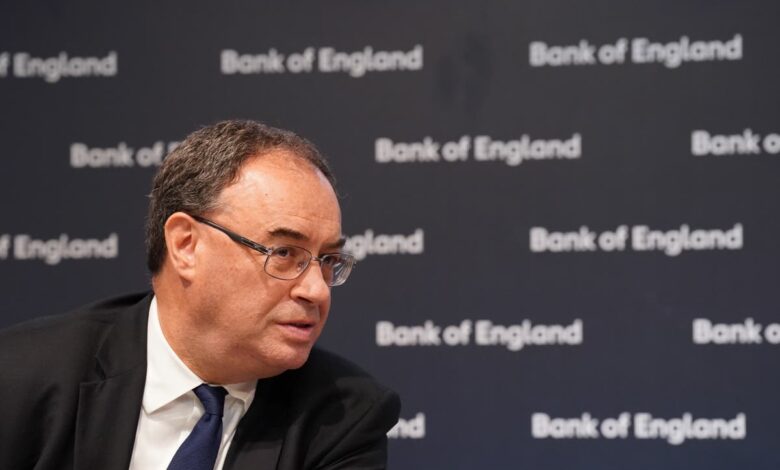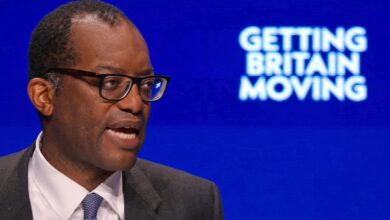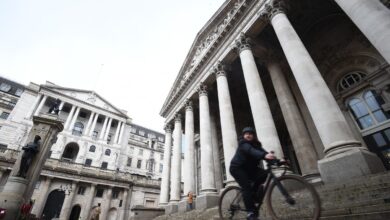Bank of England faces one of its toughest-ever interest rate decisions as UK heads towards recession

The Bank of England will deliver its latest interest rate decision on Thursday against a backdrop of soaring prices and multiple warning signs that the UK is heading for a recession this year.
That gives the nine members of the Monetary Policy Committee a tougher job than perhaps any time since Gordon Brown made the bank independent of government in 1997.
It is almost certain that interest rates will be raised from the current level of 1.25 per cent, marking the sixth consecutive increase from an all-time low of 0.1 per cent during the pandemic.
That will mean higher borrowing costs for property owners on tracker mortgages. Lenders may also be more inclined to increase the rates they charge on unsecured borrowing such as personal and business loans.
The big question for the MPC is how much to raise rates, with most analysts forecasting an increase of 0.25 percentage points or 0.5.
A 0.5 per cent hike would be the largest in 27 years and could drag on the economy, push it deeper into a recession. But failing to bring inflation down would also create problems.
Consumer price inflation – the rate at which prices rise – is running at an annual rate of 9.4 per cent, and fears are growing that it could become entrenched if it is not reduced soon.
If businesses and workers expect prices to rise sharply, they are more likely to raise their own prices and wage demands in response.
A larger hike would put the UK into closer alignment with other economies such as the US, where central bankers have aggressively raised interest rates this year.
There are signs, however, that inflation may be starting to ease off. A closely watched survey of purchasing managers, which is seen as a good early indicator, showed manufacturers put up their prices at the slowest rate of increase since May last year.
Manufacturers’ input costs rose at the slowest pace since January 2021, thanks to a fall in commodity prices. Orders and output at UK factories also fell.
A weakening global economy means that demand for commodities is likely to decline further, with prices following suit.
China reported its factory production slumped unexpectedly in July. If the decline continues it would likely pull global commodity prices down further because China eats up more raw materials than any other country.
Despite the signs of an economic slowdown, the Bank of England will continue to raise interest rates, at least in the short term.
“The MPC should be heartened by the cooling in inflationary pressures,” said Martin Beck, chief economic advisor to the EY Item Club.
“But it’s unlikely to have any impact on their thinking for this week’s meeting, where a rate rise of at least 25bps is certain and an increase of 50bps is a live possibility.
“With demand weakening both at home and abroad, the EY Item Club expects producer output price inflation to continue to cool over the remainder of 2022, which should mean that the need to continue to tighten monetary policy reduces.”
He added: “Unless the MPC signals a move to a much more aggressive approach on Thursday, we see Bank Rate reaching 2 per cent by the end of 2022, rather than the much higher level currently implied by market pricing.”
Susannah Streeter, senior analyst at Hargreaves Lansdown, also expects a rate rise: “The governor of the Bank of England, Andrew Bailey, has stressed the over-riding importance of bringing down inflation to the 2 per cent target, saying there will be no ifs and no buts put in the way.





